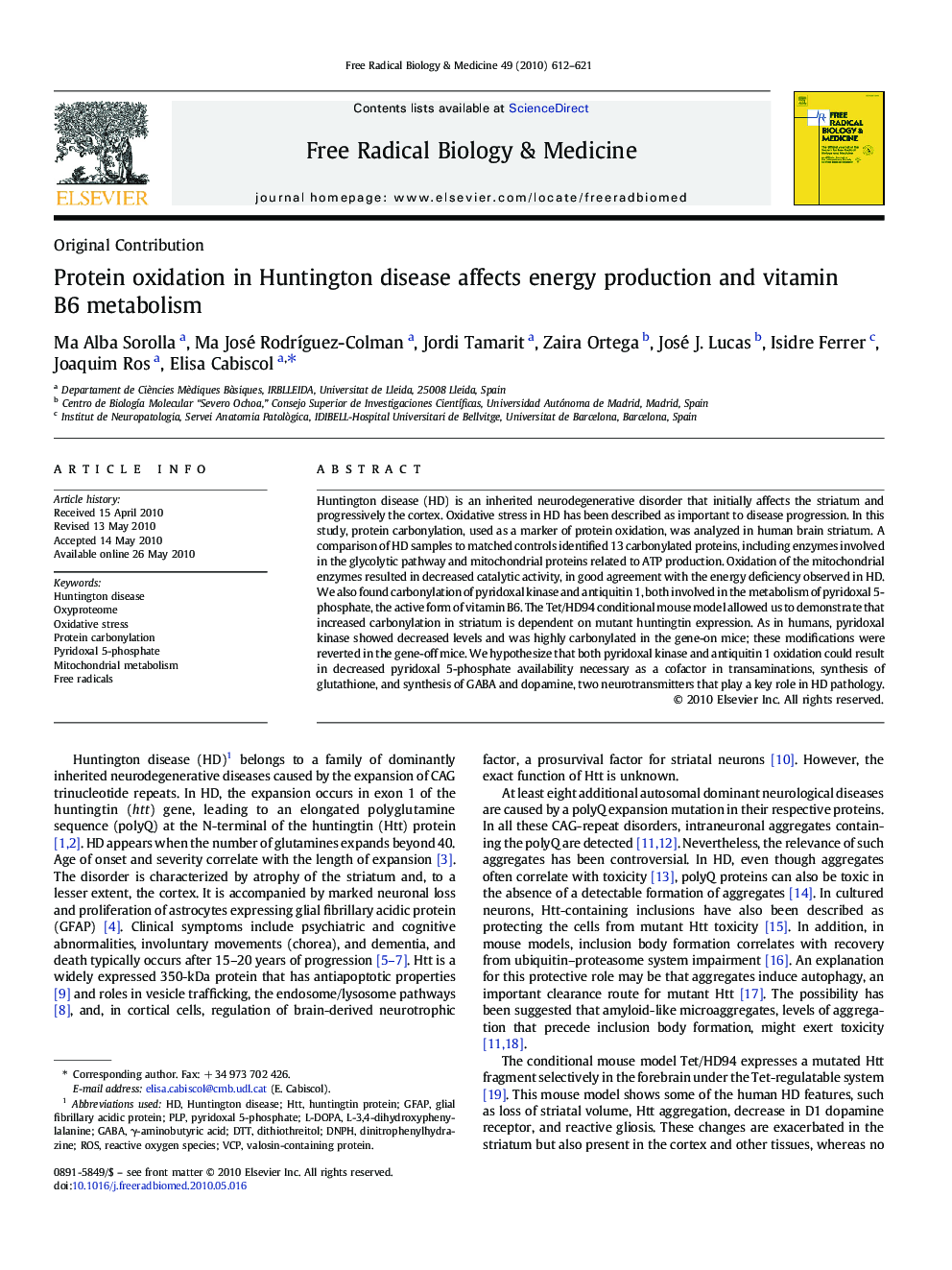| کد مقاله | کد نشریه | سال انتشار | مقاله انگلیسی | نسخه تمام متن |
|---|---|---|---|---|
| 1909270 | 1046717 | 2010 | 10 صفحه PDF | دانلود رایگان |

Huntington disease (HD) is an inherited neurodegenerative disorder that initially affects the striatum and progressively the cortex. Oxidative stress in HD has been described as important to disease progression. In this study, protein carbonylation, used as a marker of protein oxidation, was analyzed in human brain striatum. A comparison of HD samples to matched controls identified 13 carbonylated proteins, including enzymes involved in the glycolytic pathway and mitochondrial proteins related to ATP production. Oxidation of the mitochondrial enzymes resulted in decreased catalytic activity, in good agreement with the energy deficiency observed in HD. We also found carbonylation of pyridoxal kinase and antiquitin 1, both involved in the metabolism of pyridoxal 5-phosphate, the active form of vitamin B6. The Tet/HD94 conditional mouse model allowed us to demonstrate that increased carbonylation in striatum is dependent on mutant huntingtin expression. As in humans, pyridoxal kinase showed decreased levels and was highly carbonylated in the gene-on mice; these modifications were reverted in the gene-off mice. We hypothesize that both pyridoxal kinase and antiquitin 1 oxidation could result in decreased pyridoxal 5-phosphate availability necessary as a cofactor in transaminations, synthesis of glutathione, and synthesis of GABA and dopamine, two neurotransmitters that play a key role in HD pathology.
Journal: Free Radical Biology and Medicine - Volume 49, Issue 4, 15 August 2010, Pages 612–621